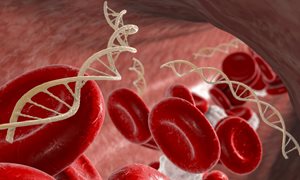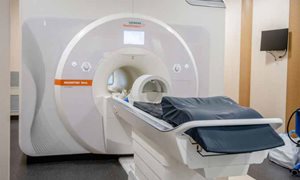
Oncological urologist Michiel Sedelaar has been appointed as core professor of Urology at Radboud university medical center / Radboud University. Also he has been appointed head of the Urology department at Radboudumc. In his research, he aims to better understand the development of prostate cancer, improve imaging and diagnostics, and evaluate local treatments.
Prostate cancer is the most common form of cancer among men. Michiel Sedelaar is a urological oncologist specializing in prostate cancer, with expertise in imaging, diagnostics, and robotic surgery. However, his chair as core professor of Urology encompasses the entire field of urology. Sedelaar: ‘I want to be an ambassador for my entire department, promoting and supporting urology. It is a broad field with many intersections with other medical disciplines.’
In his research, Sedelaar focuses on the early stages of prostate cancer. He is closely involved in a large study on focal therapy. In this study, tumors that have not yet spread are treated very locally with heat or electricity, sparing the surrounding tissue. This ENFORCE study compares focal therapy with the current standard treatment: surgery and radiation.
Refinement
If the study proves successful, health insurers will start reimbursing this therapy. ‘We expect focal therapy to have comparable effectiveness against cancer, with less risk of functional complications, such as incontinence or impotence’, says Sedelaar. The therapy is not suitable for all men with prostate cancer. The tumor must be confined to one side of the prostate, not too large or aggressive, and must be well visible on MRI. About ten to fifteen percent of patients are eligible for this therapy.
Sedelaar collaborates extensively with colleagues from the department of Medical Imaging, not only for focal therapy but also to refine diagnostics in prostate cancer. Sedelaar: ‘We are determining the best timing for using various scans, such as MRI or PET-CT. We are also investigating how AI can improve scan analysis.’
Men’s Cancer
Additionally, Sedelaar studies how prostate cancer develops, working with researchers from the Urological Research Laboratory. They examine, for example, the role of the androgen receptor, which plays a significant role in the development and progression of prostate cancer. ‘The better we understand how and why prostate cancer develops, the more we can tailor personalized treatment advice’, says Sedelaar. The researchers have also developed tests that specifically detect prostate cancer in urine, which are widely used internationally.
Furthermore, Sedelaar is committed to education. ‘I believe there is too little attention given to urology in medical training. This field has many links with other disciplines and includes the most common male cancer. Additionally, many patients with bladder issues and incontinence visit general practitioners. Therefore, I advocate for more attention to this field in both the Bachelor of Medicine and in training for general practitioners or internal medicine specialists.’
Career
Michiel Sedelaar studied Medicine at Leiden University and graduated in 1998. He obtained his PhD at Radboud University with his dissertation titled ‘Contrast ultrasonography in the detection and follow-up of prostate cancer’. He completed his urology training at Radboudumc, CWZ, and Deventer Hospital. He then worked for two years on a KWF fellowship at Johns Hopkins Medical Center in Baltimore. Upon returning in 2010, he started as a urologist at Radboudumc.
Sedelaar co-founded the Prostate Diagnostic Center with colleagues and helped develop Prosper, the robotic surgery center for prostate cancer. This centralization of care has led to better outcomes. Within Radboudumc, Sedelaar is involved in several committees: he is one of the chairs of the CBT and was until recently chair of the OR user council. He is an IFMS discussion leader and is also a member of the IFMS committee. Sedelaar is very active in the European Association of Urology and was chair of the Young Urologist Office. Since 2010, Sedelaar has been director of clinical service. In December 2023, he became interim head of the Urology department. As of June 1, 2024, he is head of the department, and also professor for a five-year term.
-
Want to know more about these subjects? Click on the buttons below for more news.
More information
Annemarie Eek

wetenschapsvoorlichter






